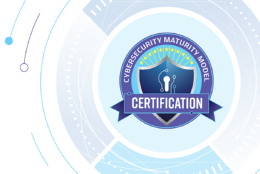Cybersecurity
-
Agencies often have data stored in multiple silos and data lakes, making discovery difficult. In addition, that data is rarely in standardized formats, especially with regard to formats usable by AI and ML. But by applying DevOps principles to their data strategies, they can overcome this stumbling block much quicker, facilitating implementation of AI and ML tools.
August 20, 2021 -
Recognizing supply chain attacks as a form of hybrid warfare, rethinking trust and taking ownership of the risk environment, and learning to effectively communicate critical information to supply chain partners are crucial steps in defending against this looming threat.
August 20, 2021 -
The National Institute of Standards and Technology said it isn't interested in establishing new testing or compliance regimes for software companies to conform to in implementing the president's new cybersecurity executive order.
August 19, 2021 -
The Cybersecurity Maturity Model Certification program has barely gotten off the ground, but the congressionally chartered IT Acquisition Advisory Council has partnered with the CMMC accreditation body to establish a Center of Excellence.
August 19, 2021 -
U.S. Census Bureau computer servers were exploited last year during a cybersecurity attack, but it didn't involve the 2020 census
August 18, 2021 -
Deploying coordinated disinformation and influence campaigns as a means of cyber warfare is becoming an increasingly popular tactic for nefarious agents looking to target the public sector.
August 18, 2021 -
A Senate Homeland Security and Governmental Affairs Committee report on cybersecurity found that seven departments hadn't fixed serious deficiencies the committee identified two years earlier.
August 17, 2021 -
Drew Malloy, technical director for DISA’s Cyber Development Directorate, said his team must segregate data between real-time systems and the historical stores.
August 17, 2021 -
For analysis, Federal Drive with Tom Temin spoke with senior fellow at the Center for Growth and Opportunity at Utah State University Will Rinehart.
August 17, 2021 -
Nicholas Andersen, chief information security officer, Public Sector at Lumen Technologies, joined host John Gilroy on this week's Federal Tech Talk to discuss cybersecurity in today’s rapidly changing federal environment.
August 17, 2021 -
Federal Drive with Tom Temin got details from Microsoft Federal Senior Account Executive Niloo Norton, and Account Technology Strategist Joel Day.
August 13, 2021 -
The Cyberspace Solarium Commission finds more than a third of its original 82 recommendations have been met, or are on the verge of being met.
August 13, 2021 -
Zero trust is all about “never trust, always verify.” But agencies can no longer apply this level of vigilance to top administrators exclusively.
August 12, 2021 -
Organizations need people with the right skills and they need to pay them commensurate with that skill. Yet, the skills shortage continues driven, according to one new study, by low pay.
August 12, 2021 -
Experts from the Justice Department, Department of Health and Human Services, U.S. Patent and Trademark Office, Government Accountability Office and Tanium will explore the move to a zero trust framework.
August 12, 2021
















